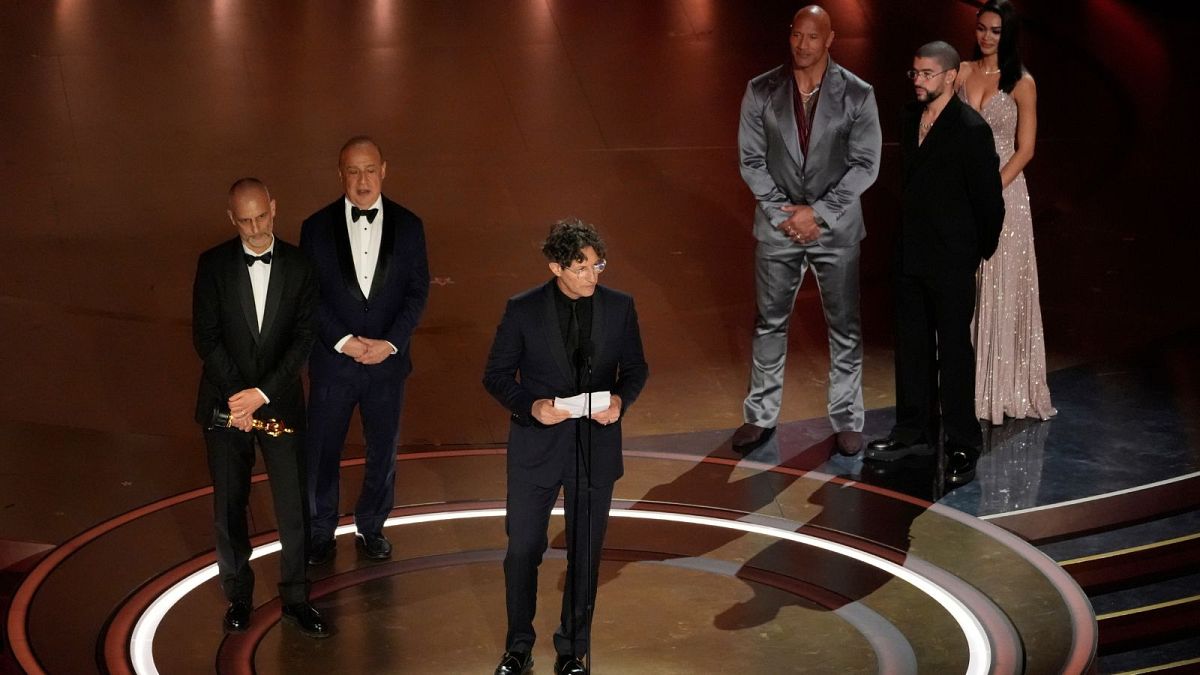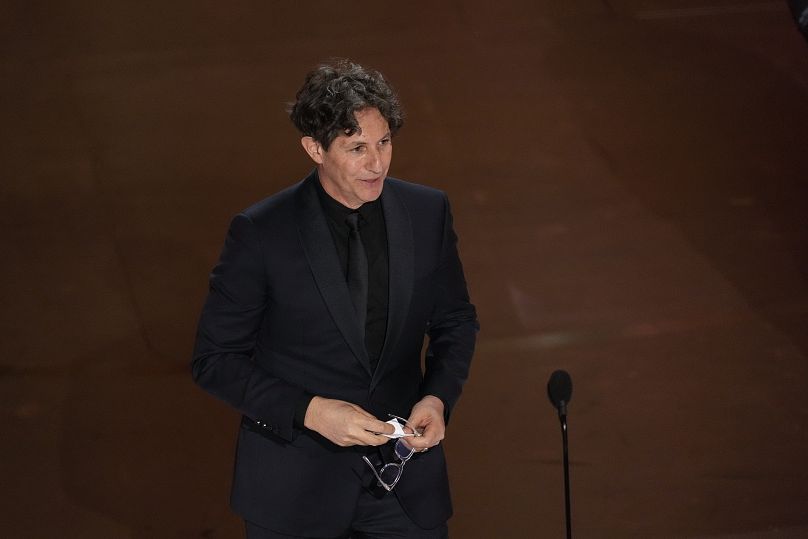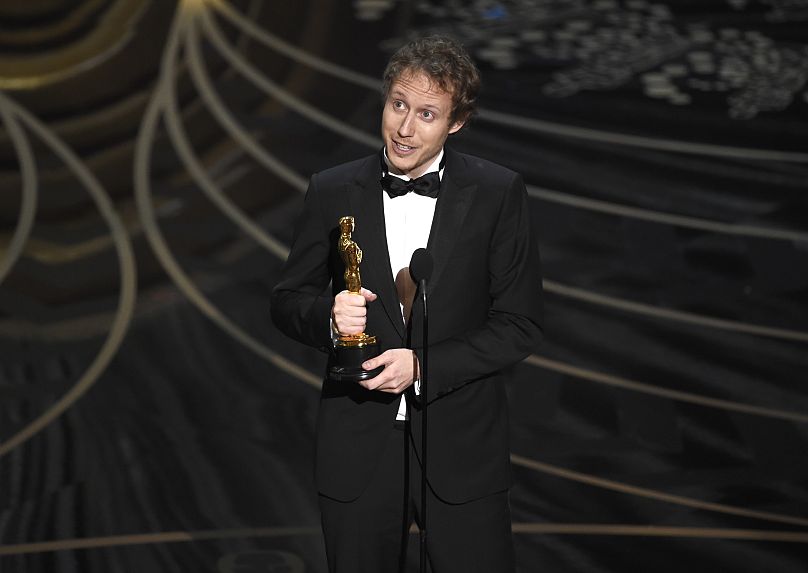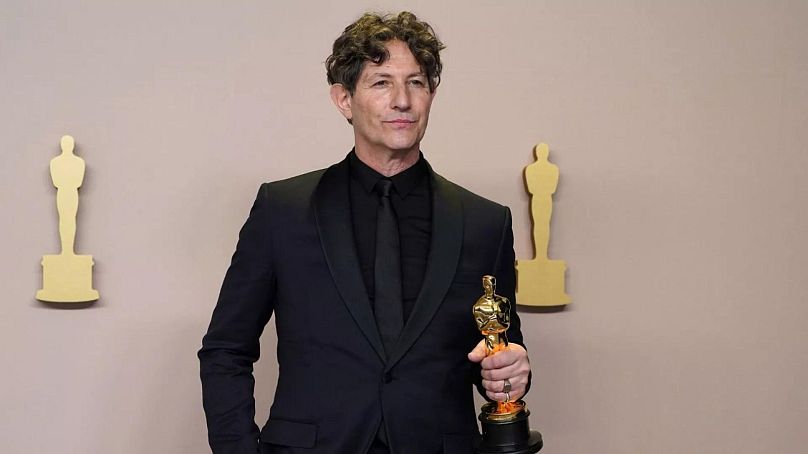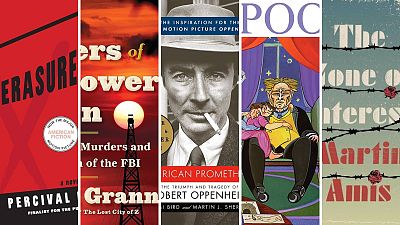Jonathan Glazer's words on Oscar night have been labelled “morally indefensible” and "reprehensible." Now, several Oscar-winning directors have weighed in - including 'Son of Saul' director László Nemes and 'Amy' director Asif Kapadia.
Controversy continues to rage regarding Jonathan Glazer’s polarizing speech at the Oscars.
When the British filmmaker took the stage after the Auschwitz-set Holocaust drama The Zone of Interest was announced as Best International Feature, he delivered a stirring speech, in which he drew a parallel between his film and the current conflict in Gaza.
Glazer, who is Jewish, said those killed in both Israel and Gaza were victims of "dehumanisation".
"Our film shows where dehumanisation leads at its worst. It's shaped all of our past and present."
He continued: “Right now we stand here as men who refute their Jewishness and the Holocaust being hijacked by an occupation which has led to conflict for so many innocent people. Whether the victims of October 7 in Israel or the ongoing attack in Gaza, all the victims of this dehumanization, how do we resist?”
Glazer has received criticism for his words, specifically from the Holocaust Survivor’s Foundation USA (HSF), whose chairman David Schaecter labelled the speech “morally indefensible”, and the the Anti-Defamation League, who posted a message on social media, saying that his comments were “reprehensible”.
“Glazer used a common refrain from Jew-haters — that the Holocaust is the ‘get out of jail free card’ for Jews,” said Allison Josephs, founder and executive director of Jew in the City. “He blamed Jews for their own massacre by saying that ‘the occupation led to conflict for so many people,’ which is why he was refuting his Jewishness and the Holocaust being used for this purpose. Cillian Murphy accepted his award as ‘a very proud Irishman.’ If only we had a SINGLE Jew in Hollywood who could accept their award as a very proud Jew.”
Now, several other notable directors have weighed in, as the controversy does not appear to be dying down.
Hungarian director László Nemes, whose harrowing Auschwitz-set drama Son of Saul (2016) has criticised the British director.
His award-winning film shares direct parallels with The Zone of Interest – and not just in setting. Both films premiered at Cannes, where they both won the the Grand Prix, and both won the Oscar for Best International Feature.
In a statement, Nemes said: “I like ‘The Zone of Interest’ very much and I think it’s an important movie. When you make a movie like this, there is a responsibility attached to it. Glazer has clearly failed to measure this responsibility, including vis-a-vis the destruction of the European Jews. And it was appalling that the elite of cinema was applauding him for it.”
The director doubled down in a statement shared with the Guardian, in which he says Glazer “should have stayed silent”.
“It is strange when the overclass of Hollywood preaches to the world about morality, instead of worrying about the sorry state of cinema, the crashing level of craft and artistry in films, the destruction of creative and artistic freedom by corporate mindset or the conquest of pyramid-scheme streaming services producing junk cinema,” reads Nemes’ statement.
“When they should aspire, in a world more and more fragmented and drawn to its own destruction, to create meaningful movies, the disconnected, hypocritical and spoiled members of the cinema elite are busy – for some reason – trying to moralise us.”
“The Zone of Interest is an important movie,” continued Nemes. “It is not made in a usual way. It questions the grammar of cinema. Its director should have stayed silent instead of revealing he has no understanding of history and the forces undoing civilisation, before or after the Holocaust. Had he embraced the responsibility that comes with a film like that, he would not have resorted to talking points disseminated by propaganda meant to eradicate, at the end, all Jewish presence from the Earth. It is especially troubling in an age where we are reaching pre-Holocaust levels of anti-Jewish hatred – this time, in a trendy, “progressive” way. Today, the only form of discrimination not only tolerated but also encouraged is antisemitism. But maybe it all makes sense, ironically – there is absolutely no Jewish presence on screen in The Zone of Interest.”
His statement ends by saying: “Let us all be shocked by the Holocaust, safely in the past, and not see how the world might eventually, one day, finish Hitler’s job – in the name of progress and endless good.”
Glazer’s speech was met with a mixed response on Oscar night, and highlights a growing divide in Hollywood, especially in the wake of the 7 October attacks in Israel.
Glazer skipped the backstage pressroom interviews after his Oscar win, and hasn’t done any interviews to clarify his words or answer any questions.
However, there are other voices that have praised the director, including celebrated filmmaker Asif Kapadia, who won the 2015 Best Feature Documentary Oscar for Amy.
Kapadia told Variety that Glazer “used his power and position and the biggest global stage to speak up for people with no power, no voice, or those too afraid to speak up, in an industry which is very conservative and risk adverse and which has a long history of blacklisting people.”
He concluded by saying: “He stood up and told the truth. This is what true artists do.”
